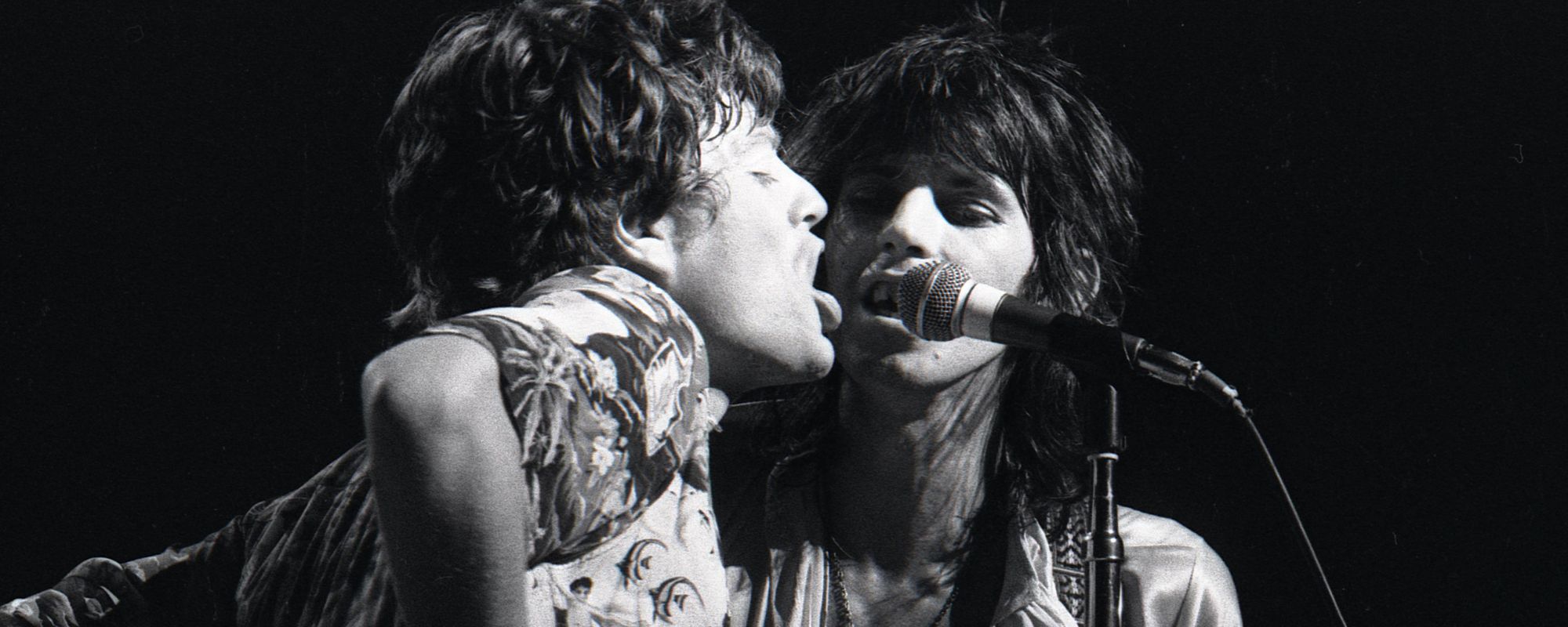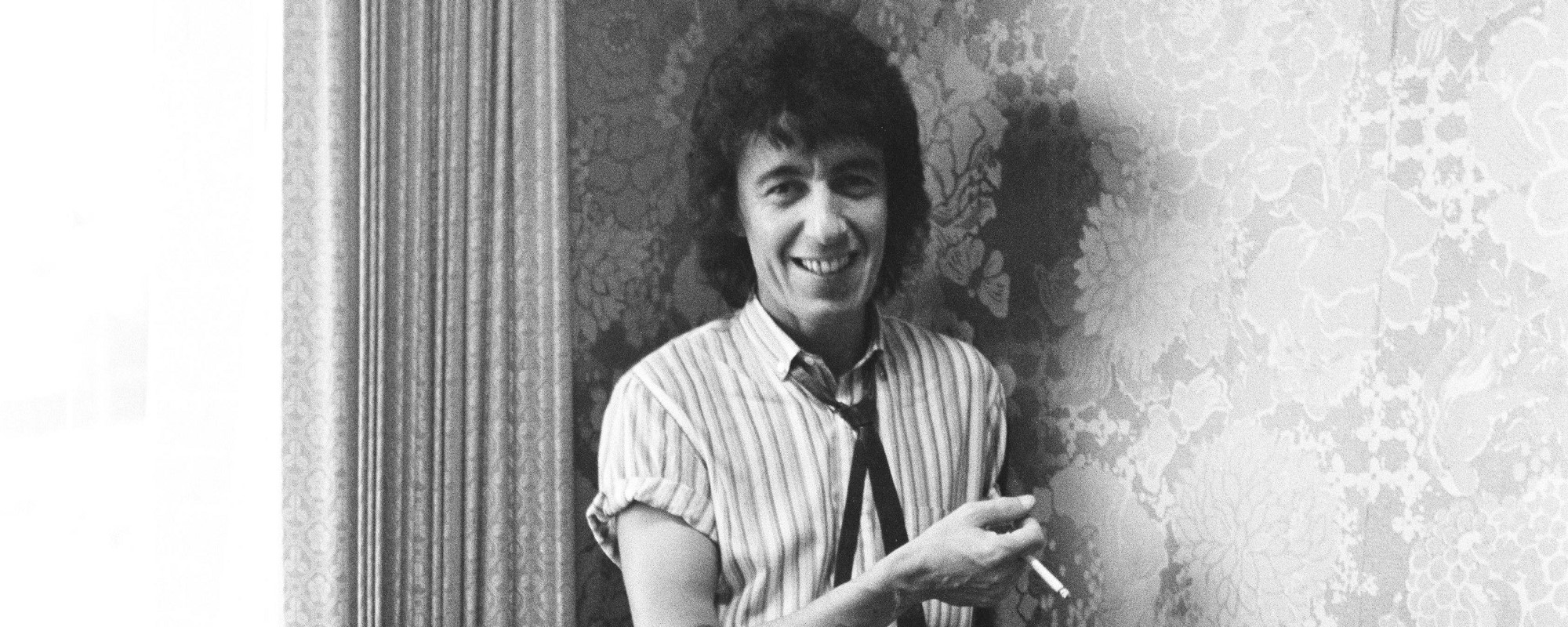Rush guitarist Alex Lifeson and his band undoubtedly changed a lot of musicians’ and music fans’ lives with their many complex and enduring prog-rock songs. Not surprisingly, Lifeson has his own list of tunes that had a major impact on his life and his love of music.
Videos by American Songwriter
The 71-year-old Rock & Roll Hall of Famer recently visited the Canadian radio station CBC Music to chat about his post-Rush band Envy of None’s just-released second album, Stygian Wavz. He also shot a new YouTube video feature for the station in which he shared his list of “5 Songs That Changed My Life.”
All of the songs were released during the 1960s, and four of the five tunes were by bona fide classic-rock legends. Most fans of Lifeson’s music likely won’t be familiar with the first song Alex picked, though, a military-themed pop ballad that was a crossover hit in 1960 for country singer Johnny Horton.
Here’s a look at what the guitar great had to say about the five songs on his list:
“Sink the Bismarck” – Johnny Horton (1960)
“Sink the Bismarck” was a a big hit for Horton in 1960, reaching No. 3 on the Billboard Hot 100 and No. 6 on the country singles chart.
Lifeson explained why the song was so important to him.
“It’s the first single record that I bought,” Alex revealed. “I think it was in 1961, when I was … 10 or 11 years old. It was a song about the German battleship The Bismarck and the sinking of it.
He added, “I was so into all things to do with the Second World War, and, you know, was part of that [Baby] Boomer generation. And it all seemed so cool. And to go out and actually buy the record was a big deal for me.”
Horton also had a No. 1 hit in 1959 with “The Battle of New Orleans.” Sadly, he was killed in a car crash in November 1960 at age 36.
“(I Can’t Get No) Satisfaction” – The Rolling Stones (1965)
Second on Lifeson’s list was The Rolling Stones’ chart-topping signature tune “(I Can’t Get No) Satisfaction.”
“‘(I Can’t Get No) Satisfaction’ … was a really big deal for me,” Alex enthused. “I got that record in 1965. And I remember that year, because my father took my sister and me to Yugoslavia, and I took the record with me, ’cause I wanted to play it for my relatives.”
Lifeson continued, “What really knocked me out about that song was Keith Richards’ [distorted] guitar sound. … That’s become such a signature for decades now.”
“For What It’s Worth” – Buffalo Springfield (1966)
Another song on Lifeson’s list was the Buffalo Springfield’s classic 1966 protest anthem “For What It’s Worth.” The tune, which was written and sung by Stephen Stills, reached No. 7 on the Hot 100 in 1967.
“[It’s] probably my favorite song ever,” Alex declared. “I remember hearing it in my dad’s car. … I was [about 13 years old] and I had my rose-colored granny glasses, trying to be a kind of cool hippie-ish kind of kid. That song came on, and it was a revelation. It was the most amazing song I ever heard.”
He added, “I ended up buying that record and I played it until there were no grooves left. There was just something about the acoustic guitars in it, the electric guitars … everything about it was just so well-crafted. And it blew my mind. And to this day, whenever I hear it, I get chills and I get goosebumps.”
Rush recorded a version of “For What It’s Worth” for their 2004 covers EP Feedback.
“How Many More Times” – Led Zeppelin (1969)
Led Zeppelin clearly were a big influence on Rush, and Lifeson picked a song from the legendary U.K. band’s 1969 self-titled debut album for his list. “How Many More Times” was an epic, eight-and-a-half-minute track that closed the Led Zeppelin album.
Lifeson recalled hitchhiking and taking a bus to downtown Toronto to buy the album at the popular record store Sam the Record Man.
“They just received eight copies on import from the U.K., and I was one of those eight people that got a copy of that album,” Alex said. “And I raced home … and put it on, and looked at the cover over and over and over again, and thought, ‘Oh my God, one day I would love to be like this.’”
Lifeson also noted that he was blown away by the fact that Jimmy Page used a bow on his guitar on the song.
In addition, Alex pointed out that he, Rutsey, and Rush frontman Geddy Lee all went to see Led Zeppelin perform in Toronto in 1969.
“We were sitting right in front of Jimmy Page … about one row of people back,” Lifeson remembered. “And he brought that violin bow out and played. It was like, ‘Oh my God, this guy’s amazing!’ And instantly, he became my hero.”
“Are You Experienced” – The Jimi Hendrix Experience (1967)
Not surprisingly, Lifeson included a song by one of the all-time great rock guitarists, Jimi Hendrix, on his tally. He picked the title track of The Jimi Hendrix Experience’s 1967 debut album, Are You Experienced.
“What a great album that was,” Alex said. “I remember … being at [original Rush drummer] John Rutsey’s [house] when his brothers got that album. His older brothers got the album, and we were downstairs in their basement. They had a record player down there, and we put it on. Nobody said a word, nobody made a sound while that record played. We were just in awe of it, and totally shocked.”
He pointed out that the song “Are You Experienced” was “the first time I heard backwards anything, backwards guitar.” Lifeson then noted, “Jimi … reversed the whole track, and then sang over it. So everything was backwards. Who would think to do something like that? And it was such a cool innovative sound that we’d never ever imagined before.”













Leave a Reply
Only members can comment. Become a member. Already a member? Log in.